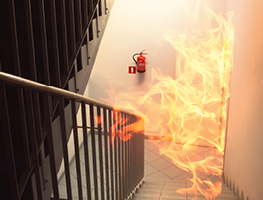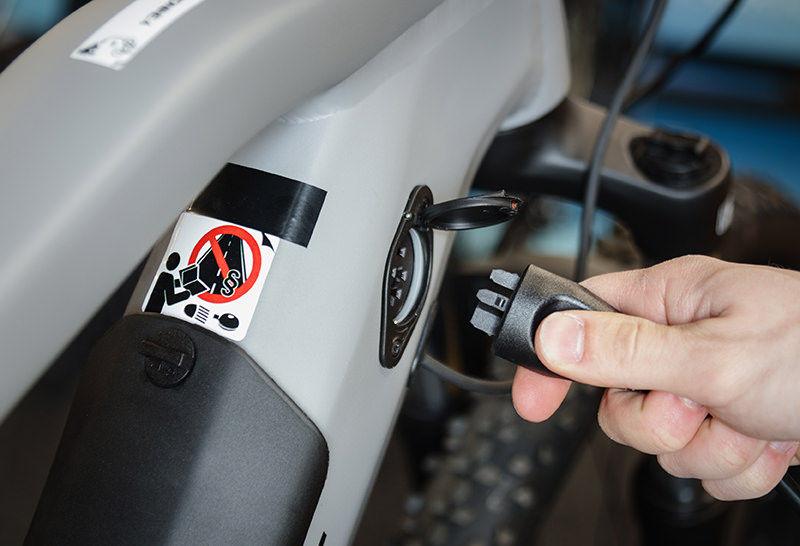E-bikes are becoming an increasingly familiar sight in the UK, enabling individuals to access more sustainable forms of travel. While the average price for an e-bike has decreased in recent years, alongside the availability of cycle to work schemes, conversion kits arguably present the most cost-effective solution for individuals looking to secure the benefits of e-mobility.
However, there are downsides to a conversion kit over an original e-bike. Following an alarming rise in fire incidents relating to e-bikes in recent years, the London Fire Brigade (LFB) has revealed that almost 40% of these fires are caused by e-bike conversion kits.
In the following article, metroSTOR assesses the benefits and risk factors of e-bike conversion kits, exploring where the concerns with fire safety emanate from, and providing guidance on how to ensure best practice for safe storage & charging.
Weighing the Benefits and Risk Factors
E-bike conversion kits integrate an electric motor to a regular manual bike to improve its speed, range and mobility. While some products range close to the price of an original e-bike, cheap DIY conversion kits can be found on the Amazon marketplace for as little as £200, enabling a wider range of individuals to experience the benefits of e-mobility. They also offer a lot of potential for customisation to suit individual preference, as well as the versatility to convert a range of different bike-types.
Converting a regular bike can be a labour intensive process, however, and typically requires some level of know-how in terms of bike mechanics to complete safely. It can also cause a significant increase in weight to the frame of the bike, which some bikes may struggle to accommodate.
What’s also crucial to note is that a significant number of conversion kits found online aren’t supplied with their own battery, which then must be purchased separately. Branded, high-quality lithium-ion batteries are typically safe to use when operated in accordance with their specifications. The main issues around fire safety begin when individuals purchase incompatible chargers for use with low-quality batteries, damaging the battery and increasing the risk of fire. The LFB have reported that over 70% of e-bike fires in the capital in 2023 were linked to battery failure.
The current UK Government requirements stipulate that all electrically assisted pedal cycles (EAPCs) must display the battery’s voltage and the power output, with a maximum output of 250 watts. However, there are currently no specific regulations for conversion kits. Product safety frameworks currently aren’t yet in place in the UK to fully ensure that items sold via the online marketplace meet the same standards as those on high streets. This lack of clarity has ultimately led to a wave of low-quality products entering the market that fail to meet UK safety standards.
Best Practices for Safe Storage & Charging
As part of efforts to target the rise of e-bike fires in the UK, LFB has launched their #ChargeSafe Campaign, aiming to provide awareness of safe charging and storage practices and call attention to the fire risks associated with lithium-ion batteries commonly utilised in e-bikes. The LFB advises that if individuals plan to retrofit their bike using a e-bike conversion kit, they seek professional assistance, ensuring that the battery and charging equipment for the conversion is supplied from a reputable manufacturer and never a second-hand purchase.
Using the advice provided in the campaign as inspiration, metroSTOR have also compiled 9 simple safety steps to help prevent the fire risks associated with lithium-batteries and e-bike conversion kits, while aiming to provide awareness of safe charging and storage practices.
For landlords and property managers looking to mitigate the risks, secure external storage and charging facilities should be regarded as the primary long-term solution for ensuring optimum safety for all residents. metroSTOR BIKE-E Storage & Charging Lockers, designed to be installed externally to ensure safe containment away from residential buildings, offer a fire-resistant enclosure to ensure effective, proven containment in the event of a fire. From single locker format to communal hub buildings, the metroSTOR modular system accommodates the increasing demand for e-bikes by enabling additional capacity to be integrated if further storage space is required.








